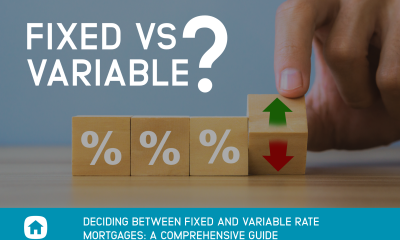CALGARY — When it comes to buying a car, Canadians can’t get enough of the zero per cent loan, no-down-payment and cashback options offered by their car dealers.
About two-thirds of Canadians applied for financing at the dealership when they purchased their last new or used vehicle, according to analytic software organization FICO, compared with a 49 per cent average overall by 2,000 consumers in nine countries surveyed earlier this year.
The numbers show an amazing level of trust, with 58 per cent of Canadians planning on using dealership financing for their next purchase and 70 per cent considering only one lender before making a decision, the highest level among the nine countries.
The convenience of one-stop shopping and the expectation of promotions and discounts drive the trend, experts say, adding there’s nothing wrong with it provided consumers are aware of their options and choose the one that best fits their situation.
“Consumers are very shrewd,” said Denis Ducharme, president of the Motor Dealers’ Association of Alberta.
“They do a lot of shopping and if there’s too big of a difference, it could cost you a deal, so it has to be set up as an option that a consumer might want.”
Financing has become an important component of the dealership sales process, like winter tire packages and extended warranties, both for its ability to attract buyers and more directly from fees earned through agreements with banks and other lenders, Ducharme said.
Consumers can choose from manufacturers’ incentives such as low interest or zero interest loans, sign deals to access credit from major banks or choose to take cashbacks for cash sales.
Leasing works in much the same way, with the consumer essentially buying the vehicle for a specific period and then either returning it or deciding to pay for the rest of the life of the car, he said.
On the other hand, car buyers who decide to get a loan through their bank have the advantage of dealing with the same organization that issued their mortgage and credit cards and might be managing their retirement funds, said Brad Robertson, a senior financial planner with CIBC Investor Services.
“What I would tell a client is to look at all the options and see how they relate to their overall financial plan,” he said.
He suggests borrowers get a loan pre-approval to make sure they have a realistic view of what they can afford before going shopping.
Interest rates and monthly payment levels are important and the bank will help the customer decide on whether to go with a variable rate or lock in if rates are rising, Robertson added.
A potentially disturbing trend is toward longer financing and lease terms, said Robert Karwel, a senior manager with J.D. Power’s Power Information Network, which analyzes vehicle transaction data from 3,000 vehicle franchises in Canada.
About half of all new vehicle financings in 2018 were for 84 months or longer and about 35 per cent of leases were for 60-month terms, he said.
“Both of these financial instruments, the 84- or 96-month loan or the 60-month lease contract, are designed to do one thing,” he said.
“It’s to get your payment to a manageable level. Because in Canada, the price of the car is largely irrelevant, it’s the monthly payment that makes or breaks the deal.”
Karwel said zero or near-zero per cent interest, especially if the term is stretched to seven or eight years, allows the customer to afford the payments on an SUV or pickup that might otherwise be out of his or her price range.
The danger comes when the buyer decides or is forced to replace the vehicle before the loan term ends, which could result in owing more than it’s worth and thus having to take on more debt.
The average financing in Canada is for about 108 per cent of the sticker price, he said, to cover taxes, freight and other fees. Dealers can help arrange an even larger amount to help pay off what’s left from a previous loan.
With the average new vehicle price at a record $34,000, Karwel said his best advice for buyers is to make their down payment as big as possible. And keep the car until the loan is paid off.
The FICO survey points to an opportunity for banks and other lenders to imitate sales practices employed by dealerships to make their products more attractive to customers through bundling, incentives and convenience, said Kevin Deveau, vice-president of FICO Canada.
“I think the advantage the dealers have is they have you captive,” he said.
“You’re in their showroom and they have some pretty attractive offers when it comes down to leasing and rates and monthly payments.”
Follow @HealingSlowly on Twitter.
Dan Healing, The Canadian Press

 Buying a Home5 years ago
Buying a Home5 years ago
 Credit6 years ago
Credit6 years ago
 Business4 years ago
Business4 years ago
 5 Mortgage Secrets7 years ago
5 Mortgage Secrets7 years ago
 Buying a Home6 years ago
Buying a Home6 years ago
 5 Mortgage Secrets6 years ago
5 Mortgage Secrets6 years ago
 News12 months ago
News12 months ago
 Business4 years ago
Business4 years ago




